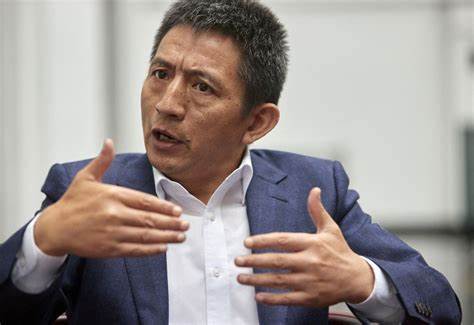China has appointed a new trade negotiator amid escalating tensions with the United States, replacing long-serving trade official Wang Shouwen with Li Chenggang, its current envoy to the World Trade Organization.
The decision, confirmed Wednesday by the human resources and social security ministry, comes at a critical moment as both countries remain locked in a prolonged tariff conflict.
Li Chenggang, 58, brings significant experience to the role, having previously served as assistant commerce minister during U.S. President Donald Trump’s first term. His legal training and international background—studies at Peking University and Hamburg University—are seen as valuable assets in addressing the legal complexities of the ongoing trade disputes.
During his time at the WTO, Li was known for taking firm stances, including a recent rebuke of the United States for what he described as arbitrary tariffs imposed on trading partners.
Wang Shouwen, 59, who became China’s vice commerce minister in 2022, is no longer listed among the leadership team on the commerce ministry’s website. The ministry has not issued any formal statement explaining the personnel change, and it remains unclear whether Wang will be reassigned or is stepping down.
The reshuffle occurs just as President Xi Jinping is on a diplomatic tour of Southeast Asia, seeking to strengthen trade relationships with neighboring countries such as Vietnam, Malaysia, and Cambodia. The timing of the move suggests a strategic shift in Beijing’s approach to the trade standoff with Washington, which has intensified under renewed threats of U.S. tariffs.
Unlike other countries that have pursued bilateral trade deals with the United States in response to President Trump’s tariff policies, China has largely opted for retaliatory measures and avoided direct negotiations. Beijing maintains that talks can only happen on the basis of mutual respect and equality.
Still, Washington has signaled openness to a deal, recently stating that China should take the first step.
The leadership change was preceded by reports that Li had been involved in various forums, including one on March 31, where he was identified as a commerce ministry leader. This suggested his promotion was in the works well before the official announcement.
His legal expertise and background in international trade may play a central role in China’s future strategy during the ongoing trade dispute.
China’s recent actions at the WTO, including filing a new complaint against the U.S. over tariffs, underscore its intention to engage more deeply in legal and institutional processes to address trade grievances. With this shift in leadership, China seems poised to recalibrate its strategy, potentially looking to negotiate while maintaining a firm stance on legal and trade principles.




